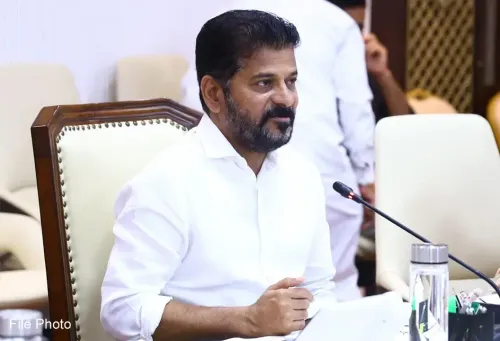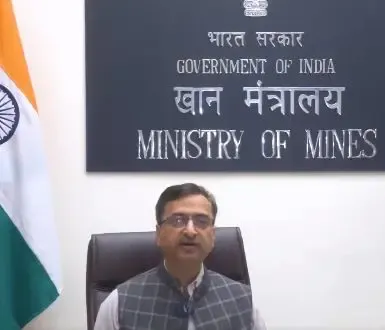India Emerges as a Solar Superpower Under PM Modi: UN's Simon Stiell

Synopsis
Key Takeaways
- India aims for 500 GW non-fossil energy by 2030.
- Recognized as a solar superpower by UNFCCC.
- Over 100 GW of solar capacity already installed.
- Major initiatives like PM Surya Ghar Muft Bijli Yojana.
- 3,450% increase in solar capacity in a decade.
New Delhi, Feb 15 (NationPress) As India aims to achieve the ambitious target of 500 GW of non-fossil fuel-based energy capacity by 2030, set by Prime Minister Narendra Modi, the nation has already been recognized as a “solar superpower” by Simon Stiell, Executive Secretary of the United Nations Framework Convention on Climate Change (UNFCCC).
During a media event in the capital on Saturday, Stiell remarked that while some governments merely talk, “India takes action, prioritizing sustainable growth and energy security”.
Under the guidance of PM Modi, India has emerged as a global leader in combating climate change.
Stiell emphasized the importance of ensuring energy access while addressing climate change, underscoring India’s ambitious plans to enhance clean energy infrastructure at the ET NOW Global Business Summit 2025.
“Under PM Modi’s leadership, India is expanding clean energy, reducing carbon intensity, and fostering a green economy,” he stated.
India’s pledge to achieve net-zero emissions aligns with global objectives, showcasing its commitment to sustainability.
“As global climate initiatives escalate, India is at the forefront of sustainability, clean technology, and climate finance, positioning itself as a forthcoming clean energy superpower,” said the top UN official, adding that a stronger embrace of the global clean energy surge will accelerate India’s economic ascent.
Stiell also urged India to formulate an ambitious climate strategy encompassing its entire economy.
The nation has already achieved a significant milestone by exceeding 100 GW of installed solar power capacity, solidifying its status as a global leader in renewable energy.
As of January 31, India’s total solar capacity installed stands at 100.33 GW, with 84.10 GW in progress and an additional 47.49 GW under tendering.
India’s energy evolution over the last decade has been both historic and motivating. Initiatives such as solar panels, solar parks, and rooftop solar projects have fostered revolutionary advancements.
The PM Surya Ghar Muft Bijli Yojana is transforming rooftop solar into a household reality and is a game-changer in sustainable energy, empowering every home with clean power. Launched in 2024, the scheme is nearing 9 lakh rooftop solar installations, enabling families nationwide to adopt clean energy solutions.
The country’s solar power sector has experienced an extraordinary 3,450 percent growth in capacity over the past decade, escalating from 2.82 GW in 2014 to 100 GW in 2025.









